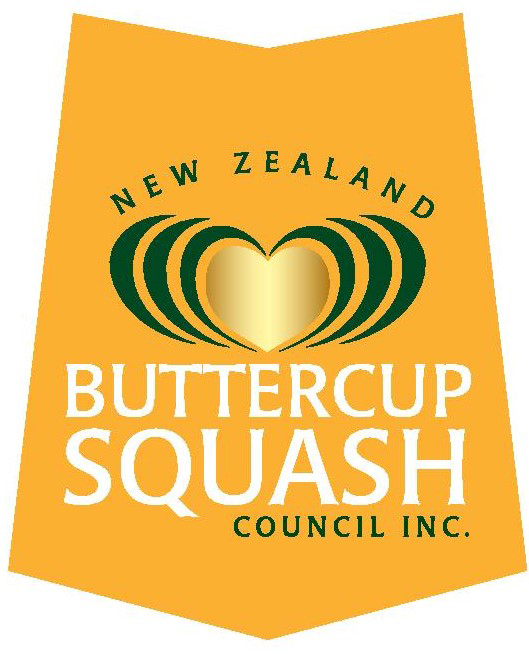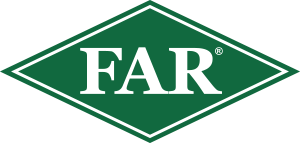The Vegetable Research & Innovation Board is responsible for the governance of Horticulture New Zealand’s vegetable research and innovation activities.
The core purpose of the VR&I Board is to underpin sustainable growth of the vegetable sector. The VR&I Board aims to achieve this by developing, resourcing and managing a cross-sector research and innovation portfolio and communicating the results of this research to industry stakeholders.
The VR&I Board also represent the combined interests of vegetable sector to New Zealand’s research providers and provides a platform for knowledge sharing and leveraging research and innovation investment in vegetables research.
Our Board
David Hadfield
David is Chair of the VR&I Board. David is also the Chair of Process Vegetables New Zealand. He is a Director of Malabar Farms Ltd which operates a Arable and Process Vegetable operation in Canterbury.
Warwick Simpson
Warwick is one of two Vegetables NZ Inc. representatives on the VR&I board. Warwick is Managing Director of family business Simpson Gardens Ltd., which grows kumara in Northland; Vice-Chair of Vegetables NZ Inc.; and Secretary & Treasurer of the Northern Wairoa Vegetable Growers Association.
Robert Lindsay
Robert is the Vegetables NZ representative for the covered vegetable sector on the VR&I Board. Robert has worked across the primary industries in both public and private sectors in viticulture, cereal cropping, fresh vegetable production, and covered cropping. Robert is currently Managing Director of Island Horticulture, an associate director of Vegetables NZ Inc, an observer on Tomatoes NZ board.
Paul Munro
Paul Munro is a co-opted representative on the VR&I Board. Paul has 35 years R&D experience in the Agchem industry. Paul manages his own consulting company, JP Munro Consulting, and is based in Taupo.
Dereck Ferguson
Dereck Ferguson represents the New Zealand Buttercup Squash Council on the VR&I Board. Dereck is a consultant agronomist based in the Hawkes Bay, overseeing squash, maize and forage crop production programmes.
James Kuperus
James represents Onions NZ on the VR&I Board. James is the CEO of Onions New Zealand.
Dr Alison Stewart
Dr Alison Stewart is the CEO of the Foundation for Arable Research (FAR). Alison brings specialist knowledge in the areas of plant protection, sustainable disease management, plant biotechnology. Alison has a wealth of experience managing research groups and programmes in New Zealand universities and CRI's.
Miriam Hall
Miriam is the Business Manager (Vegetables) at Plant & Food Research. Miriam manages the relationship between research partners, customers, and scientists involved in vegetable and land use suitability research and for PFRs work with Horticulture New Zealand and Hort Innovation Australia.
Dr Sally Anderson
Dr Sally Anderson is the VR&I Co-ordinator and manages the planning and implementation of research for the VR&I Board. Sally has over 20 years research experience and leads the plant health R&D team at Market Access Solutionz, a Wellington-based consultancy.
Our Research Projects
The table below summarises the current and completed VR&I research projects .
VR&I Project |
Description |
Current Research |
|
| Monitoring biosecurity risks 2022-2025 [RI 2022-001] |
Market Access Solutionz to provide on-going monitoring of biosecurity performance at the border. Co-funded by VR&I and SGRR. Three-year project to identify and manage biosecurity risks that could be a threat to the vegetable sector. The project comprises two aspects (1) monitoring new and emerging pests and diseases, (2) monitoring pests that are arriving and intercepted at the border and engaging with MPI to manage import pathways. |
| Nutrient concentration in tile drains [RI 2020-002] |
AgFirst led project to better understand horticultural management practices and their downstream effects on the quality of water coming out of tile drain systems. 3yr SFFF project beginning Dec 2020. This project finished in June 2024. A video that summarises the programme was released by Agfirst. |
| Sustainable Vegetable Systems [RI 2020-004] |
This project looks at current practices, measurement tools and models, and builds a platform to enable growers to make sustainable decisions economically and environmentally. Industry appetite, regulatory push, and knowledge extension and transfer will ensure sustainable practices are adopted and Government targets are met. Duration: 1 July 2020 – 30th June 2024 Co-funding by MPI, PNZ, HortNZ, VR&I Board, Vegetables NZ Inc. The SVS tool is available online - see SVS Tool. |
| Development of an online vegetable R&D catalogue [RI 2018-001] |
To develop a catalogue of research work commissioned by the vegetable product groups so that historical research can be readily accessed through an online portal. Website launched November 2018. https://www.vri.org.nz |
| VR&I Extension activities[ RI 2019-006] |
Resources to facilitate extension activities. |
|
FPSC Food safety initiative [RI 2023-001] |
Fill the food safety knowledge gaps in parts of the supply chain and consolidate all the knowledge into a usable form for the horticultural sector.
An evaluation of the change in knowledge, skills and attitudes as a result of the project. |
|
Cyclone Gabrielle Grower Recovery Hubs. [RI 2023-004] |
Supporting recovery and resilience on arable soils. Working with farmers in Hawke’s Bay and Gisborne to establish 4 community support hubs. Capture and share learnings and build resources to support recovery. |
| Cyclone Gabrielle Interim study [RI 2024-001] | VR&I supporting soil sampling following Cyclone Gabrielle to understand how productive soil recovers. Paired sites have been sampled from impacted zones in Hawke's Bay, and assessed for nutrient fertility, VSA, earthworm species and abundance, soil bulk density. |
| Crop stacking [RI 2025-001] | This project aims to validate growing systems that involve ‘stacking’ a cover crop with a cash crop to improve soil health and reduce soil and nutrient loss. A pilot trial undertaken in 2023 showed promising results and potential to be integrated into current commercial crop production systems. |
| FAR Integrated weed management SFFF [RI 2026-001] |
This project will provide cropping (defined as arable and vegetable in the SFFF proposal) farmers and industry reps with access to reliable and up-to-date information, tools, and strategies to effectively and confidently manage weeds through an integrated weed management approach (IWM). This will enable farm systems to maintain market access and remain profitable, whilst sustaining weed management tools for future use by mitigating herbicide resistance. the project is structured as 4 workstreams:
|
Completed projects |
|
|
Overcoming Herbicide Resistance - MBIE [RI 2018-005] |
The goal is for NZ to become a recognised world-leader in sustainable weed management through minimising, managing and/or avoiding future herbicide resistance. Through this integrated research programme, we will deliver a range of effective and adoptable solutions by: 1. Anticipating herbicide resistance. 2. Understanding and influencing drivers of herbicide practices. 3. Identifying instances of resistance and their impact. 4. Managing herbicide resistant weeds |
|
Gamma ray soil mapping [RI 2022-003] |
Project to validate the accuracy of this type of technology across a range of different soil types within New Zealand using a gamma ray spectrometer supplied by SoilOptix® in Canada. The results of the soil scans are sent to the parent company in Canada, together with the results of selected laboratory-based soil analyses to produce high-definition GIS based maps of up to 45 soil characteristics including: bulk density, macro and micro nutrient levels, pH, soil texture (sand% silt%, clay%), organic matter %, total and active carbon. |
|
Laboratory benchmarking [RI 2021-002] |
Project to test the accuracy of residue testing between different NZ laboratories. |
|
Vegetable information systems strategy [RI 2021-004] |
To develop a vegetable sector information systems strategy, looking at: understanding growers/sectors reporting requirements; spray diary platforms, including gaps; platforms to tell the grower's story (farm to fork). |
|
Crop Protection Strategy 2022 [RI 2022-002] |
Project for ongoing management of the vegetable industry crop protection strategy for 2022.Projects: (1) Vegetable crop protection strategy. (2) Crop profiles, (3) regulator engagement. Duration 1st April 2022 to 31st March 2023 |
|
Neonicotinoid initiative/Agrichemical initiatives [RI 2018-003] |
For the vegetable industry, research is needed to develop a set of guidelines (code of responsible use) for NZ growers, to dispel concerns around neonicotinoid use, and to ensure that use is preserved for the long term. A grower brochure describing Best Management Practice has been developed by the Communications Team at FAR. This brochure is now available via the VR&I website and was promoted in the September 2019 issue of NZ Grower. VR&I and FAR combined initiative. |
|
Nitrogen mineralisation [RI 2019-001] |
This project will conduct on-farm demonstration trials with different crops, soils and climates to demonstrate the benefits of the new test to improve N management on farm. Duration: 3 yrs 1 July 2019 – 30 June 2022 SFF project. VR&I and Hort NZ co-funders. |
|
Monitoring biosecurity risks 2019-2021 [RI 2019-003] |
Market Access Solutionz to provide on-going monitoring of biosecurity performance at the border. Engagement with MPI and Product Groups. Duration: 3 yrs 2019 - 2022. Co-funded by VR&I and FAR. |
|
Crop Protection Strategy 2021 [RI 2021-001] |
Project for ongoing management of the vegetable industry crop protection strategy for 2021.Project 1: Vegetable crop protection strategy. Project 2: Analysing non-compliances. Duration 1st April 2021 to 31st March 2022 |
|
Protecting our Groundwater: Measuring and managing diffuse nutrient losses from cropping systems[ RI 2017-005] |
Network of drainage fluxmeters on arable and vegetable farms is measuring drainage and nutrient losses under cropping rotations.This project will:- Develop and reinforce the adoption of three management practices that strongly influence nutrient losses from cropping systems.- Enable a comparison of actual drainage and nutrient losses with OVERSEER predicted losses.- Enable comparisons of drainage and nutrient losses between the fluxmeters and lysimeters. MfE Freshwater Environment Fund. .Duration: from January 2018 for 3 years. Programme managed by FAR. This programme brings together monitoring of all existing fluxmeter networks from Root zone reality. |
| Vegetable off label use poster [RI 2018-003] |
An off-label use poster explaining the key rules and regulations for the NZ GAP off-label guidance document. |
| Vegetated buffer strips fact sheet [RI 2020-003] |
There is growing awareness of the need for knowledge extension on vegetated buffer strips, based on observations gathered from the implementation of the NZGAP Environment Management System (EMS). This project will develop a factsheet. |
| Life cycle analysis [RI 2019-008] |
FAR led project to develop a crop rotation LCA methodology and quantify emissions across case study rotations. VR&I Board funding to support inclusion of 2x vegetable crop rotations. Duration 2020 - 2021 |
| Crop Protection Strategy 2020 [RI 2020-001] |
Project for ongoing management of the vegetable industry crop protection strategy for 2020.MS1: Update tick sheetsMS2: Refresh crop profile docsMS3: Determine gaps and liaise with crop protection companiesMS4: Identify trial options and publish final report.Projects:Project 1: Analysing non-compliances Project 2: Annual scan of Australian agchems. Project 3: EPA/MPI engagement Duration 1st April 2020 to 31st March 2021 |
| Quick test champions – supporting fertiliser decisions for crops [RI 2019-012] |
MPI have agreed to fund a 1-year ($120k) extension project (managed by FAR) to develop an extension process to roll-out the N-quicktest to arable, vegetable, and forage cropping farmers. Duration 2020. |
| Maximising the value of Irrigation (MBIE) [RI 2013-002] |
On farm to assess how precision irrigation can affect financial and environmental on-farm performance.MVI story map available (https://storymaps.arcgis.com/stories/ba955a035f6b4a36a0561fca054da3b5) MBIE programme: $8.4 million programme (led by Landcare)Duration: July 2013 – July 2019FAR, Hawkes Bay Regional Council, Environment Canterbury, Irrigation New Zealand. |
| Don't muddy the water: Quantifying the effectiveness of erosion and sediment control on cultivated land. [RI 2015-002] |
Quantifying the relative effectiveness of the key erosion and sediment control practices advocated for reducing sediment and phosphorus loss. Next steps – future plans - see EMS & sustainability dashboard project ‘Joining the dots’ report. Transfer of online app to HortNZ site, further testing and refinement. Duration: July 2015 – June 2018, plus 12-month extension.$784K SFF programme. Co-funders: FAR, Hawkes Bay Regional Council, Gisborne District Council, Environment Canterbury, Northland Regional Council, VR&I. |
| Nitrogen Quick Test (Nitrogen - manage it and measure it) [RI 2016-002] |
This project developed a simple and adoptable N Quick Test Mass Balance field guide that steps farmers through the process of deciding whether or not to apply nitrogen to their crops. N Quick test guide and tool available to download via VR&I website and linked on the Environmental Resources page. Duration: July 2016 – June 2019Co-funders: FAR, PNZ, Waikato Regional Council, VR&I. |
| Nutrient requirements of vegetable crops & workshop [RI 2017-004] |
Partnership between FANZ, VR & I, and Plant & Food Research to produce a resource of nutrient management and fertiliser recommendations. Co-Funders: PFR, VR&I, FANZ. |
| Smart tools and tips for irrigators [RI 2017-008] |
Uptake of good irrigation good management practice through development of resources for industry and Councils. Year 3 focus has been on service industry engagement. Continued development of an e-learning platform aimed at increasing irrigator knowledge. Early findings from this project have illustrated the need to promote a clear point of difference for accredited (design-install) companies, with an aim to build greater recognition of accreditation programmes. Co-funders: Irrigation NZ, Regional Councils, FAR, Beef and Lamb, Duration: June 2017 – July 2020. |
| CoP/GMP Development [RI 2018-004] |
Development of the following resources:1. Generic IPM guideline for vegetable crops 2. Development of a guideline for the design of farm washpads and management of washpad discharges. |
| Development and finalisation of erosion and sediment control web-app [RI 2019-011] |
Improvement and finalisation of the existing web-app that has been developed for the SFF project ‘Don’t Muddy the water”. The app is available via a link on the VR&I website https://www.vri.org.nz/esc/ |
| EMS and sustainability dashboard ‘Joining the dots’ [RI 2019-005] |
Case studies to support the work being conducted by Horticulture NZ and NZ GAP to meet the requirements for Farm Environment Plans. The focus is on soils, although the lessons learned can be applied to other discharges such as nutrients. The project dovetails into the current SFF Project Don’t Muddy the Water. |
| Vegetable Agrichemical Strategy Co-Ordinator 2019 [RI 2019-004] |
Project to maintain an ongoing agrichemical strategy for the vegetable industry. Coordination of this programme is provided by Market Access Solutionz.4x milestones plus:Project 1: Analysing non-compliances (NZGAP/FRSP)Project 2: Annual scan of Australian agrichemical projects Duration: April 2019 - March 2020. |
| Chemical OP Poster [RI 2019-010] |
Development of a vegetable spray shed poster for using acephate and methamidophos Joint project between MPI NZ Food Safety and VR&I.VR&I funding approved via email 2/12/2019 The poster is available to download via the VR&I website. |
| Tamarixia BCA - SFF Project [CP 2016-001] |
Improved control of tomato potato psyllid with the psyllid parasitoid Tamarixia triozae.This project will identify effective release strategies of T. triozae in New Zealand using a series of pilot releases adjacent to field crops (potatoes). Multiple releases will then be made around the country to ensure the establishment of T. triozae in New Zealand horticultural environments. Timeframe: 1st July 2016 – 30th June 2020. Co-funders: Tomatoes NZ, Potatoes NZ, NZ Tamarillo, Vegetables NZ Inc, Heinz-Wattie’s |







